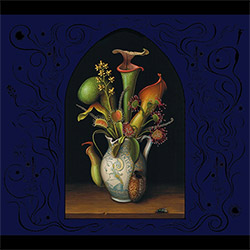
Intended for late night listening, John Zorn's seven rich and evocative compositions are beautifully rendered by the Downtown New York quartet of Bill Frisell on guitar, Brian Marsella on piano & Fender Rhodes Piano, John Medeski on organ and Kenny Wollesen on drums & chimes, in an album to accompany a dream-like evening of reflective music.
Out of Stock
Quantity in Basket: None
Log In to use our Wish List
Shipping Weight: 4.00 units
Sample The Album:
John Zorn-composer
Bill Frisell-guitar
Brian Marsella-piano, Fender Rhodes Piano
John Medeski-organ
Kenny Wollesen-drums, chimes
Click an artist name above to see in-stock items for that artist.
UPC: 702397838722
Label: Tzadik
Catalog ID: CD-TZA-8387
Squidco Product Code: 31589
Format: CD
Condition: New
Released: 2022
Country: USA
Packaging: Cardboard Gatefold 3 Panels
Recorded at East Side Studio, in New York, New York, on October 27th and 28th, 2021, by Marc Urselli.
"A beautiful suite of music for late night listening, spiritual and evocative, performed by an all-star unit of four members of Zorn's inner circle. Structured like a religious mass, these seven lovely nocturnes take you to an otherworldly space of beauty and tenderness, unlike any other Zorn compositions you have ever heard. Gorgeous and restful music from a compositional seeker who continues to defy categorization, Perchance to Dream is one of the most unusual and haunting collections in his catalog."-Tzadik
Artist Biographies
• Show Bio for John Zorn "John Zorn (born September 2, 1953) is an American composer, arranger, producer, saxophonist, and multi-instrumentalist with hundreds of album credits as performer, composer, and producer across a variety of genres including jazz, rock, hardcore, classical, surf, metal, klezmer, soundtrack, ambient, and improvised music. He incorporates diverse styles in his compositions which he identifies as avant-garde or experimental. Zorn was described by Down Beat as "one of our most important composers". Zorn established himself within the New York City downtown music movement in the mid-1970s performing with musicians across the sonic spectrum and developing experimental methods of composing new music. After releasing albums on several independent US and European labels, Zorn signed with Elektra Nonesuch and received wide acclaim with the release of The Big Gundown, an album reworking the compositions of Ennio Morricone. He attracted further attention worldwide with the release of Spillane in 1987, and Naked City in 1989. After spending almost a decade travelling between Japan and the US he made New York his permanent base and established his own record label, Tzadik, in the mid-1990s. Tzadik enabled Zorn to maintain independence from the mainstream music industry and ensured the continued availability of his growing catalog of recordings, allowing him to prolifically record and release new material, issuing several new albums each year, as well as promoting the work of many other musicians. Zorn has led the hardcore bands Naked City and Painkiller, the klezmer/free jazz-influenced quartet Masada, composed over 600 pieces as part of the Masada Songbooks that have been performed by an array of groups, composed concert music for classical ensembles and orchestras, and produced music for opera, sound installations, film and documentary. Zorn has undertaken many tours of Europe, Asia, and the Middle East, often performing at festivals with many other musicians and ensembles that perform his diverse output. Zorn's compositions cross many genres and he has stated "All the various styles are organically connected to one another. I'm an additive person-the entire storehouse of my knowledge informs everything I do. People are so obsessed with the surface that they can't see the connections, but they are there." For Zorn "Composing is more than just imagining music-it's knowing how to communicate it to musicians. And you don't give an improviser music that's completely written out, or ask a classical musician to improvise. I'm interested in speaking to musicians in their own languages, on their own terms, and in bringing out the best in what they do. To challenge them and excite them." " ^ Hide Bio for John Zorn • Show Bio for Bill Frisell "Born in Baltimore, Bill Frisell played clarinet throughout his childhood in Denver, Colorado. His interest in guitar began with his exposure to pop music on the radio. Soon, the Chicago Blues became a passion through the work of Otis Rush, B.B. King, Paul Butterfield and Buddy Guy. In high school, he played in bands covering pop and soul classics, James Brown and other dance material. Later, Bill studied music at the University of Northern Colorado before attending Berklee College of Music in Boston where he studied with John Damian, Herb Pomeroy and Michael Gibbs. In 1978, Frisell moved for a year to Belgium where he concentrated on writing music. In this period, he toured with Michael Gibbs and first recorded with German bassist Eberhard Weber. Bill moved to the New York City area in 1979 and stayed until 1989. He now lives in Seattle. "When I was 16, I was listening to a lot of surfing music, a lot of English rock. Then I saw Wes Montgomery and somehow that kind of turned me around. Later, Jim Hall made a big impression on me and I took some lessons with him. I suppose I play the kind of harmonic things Jim would play but with a sound that comes from Jimi Hendrix", Frisell told Wire. Bill also lists Paul Motian, Thelonious Monk, Aaron Copland, Bob Dylan, Miles Davis and his teacher, Dale Bruning, as musical influences. Bill recorded his first two albums as a leader on ECM, both produced by Manfred Eicher. Subdued and lyrical in nature, In Line, the first of the ECM recordings, employed both electric and acoustic guitars in a series of solos (including some overdubbing) and duets with bassist Arild Andersen. Second was Rambler, featuring Kenny Wheeler, Bob Stewart, Jerome Harris and Paul Motian. About Rambler, Fanfare said: "Bill Frisell has built a little masterpiece here - not just a showcase for his own instrumental creativity (of which there is much in evidence), but a clever and poetic whole." Frisell's third album and last for ECM, Lookout For Hope, marked the recording debut of The Bill Frisell Band featuring Hank Roberts, Kermit Driscoll and Joey Baron. Produced by Lee Townsend, the album's diverse material - ranging from country swing to reggae, quasi-heavy metal and backbeat rock with a twist to Monk's "Hackensack" - nevertheless possessed the cohesive and unmistakable personality of a working band on to a sound of its own. High Fidelity called it "the fullest showing of Frisell's ability to date, especially his compositional range." The Chicago Tribune said, "Lookout For Hope offers one of the most hopeful signs that contemporary jazz can evolve with dignity, wit and charm." Before We Were Born, Frisell's debut recording for Nonesuch, featured three musical settings: Peter Scherer and Arto Lindsay produced, co-arranged and performed on three Frisell compositions. "Some Song and Dance", produced by Lee Townsend, is a suite of four pieces performed by Frisell's Band with a saxophone section featuring Julius Hemphill, Billy Drewes and Doug Wieselman. Frisell's "Hard Plains Drifter" is an extended work shaped, produced and arranged by John Zorn and played by the Frisell Band. The New York Times observed: "By following through on the implications of his unfettered sounds, Mr. Frisell has made his best album." Frisell's second Nonesuch album, Is That You?, features nine original Frisell compositions, one by producer Wayne Horvitz and two cover tunes - "Chain of Fools" and "Days of Wine and Roses". With Frisell playing guitars, bass, banjo, ukulele and even clarinet, Is That You? demonstrated with great clarity his pan-stylistic, yet strangely unified musical world. Musician called the album "a very personal vision, tearing down stylistic barriers with delicacy and sudden bursts of emotion." Frisell's third album for Nonesuch, Where in the World?, also produced by Wayne Horvitz, was the band's final recording with cellist Hank Roberts. The Philadelphia Inquirer said: "There is nothing standard about Where in the World?...Frisell is not only a master of an unusual guitar-based sonic tapestry, he's one of the few composers capable of writing for an interactive ensemble." Have a Little Faith, Frisell's 1992 Nonesuch recording, was something of a tribute album. Here, he interpreted the music of a number of American composers whose music had inspired him - Aaron Copland, Muddy Waters, Bob Dylan, John Hiatt, Sonny Rollins, Stephen Foster, Charles Ives, Victor Young, Madonna and John Philip Sousa. The extent to which Bill has made this music his own demonstrates the completeness of its link to his own compositional approach. For this recording Frisell's Band was augmented by Don Byron (clarinet, bass clarinet) and Guy Klucevsek (accordion) and produced by Wayne Horvitz. The San Francisco Bay Guardian said, "Frisell treats each piece with typical earnestness and lyricism, breaking into wrenching distortion and stormy group improv only after breathing the original full of a softly glowing life." This Land, Frisell's fifth Nonesuch recording, consists of all original material with the band and a horn section of Don Byron (clarinets), Billy Drewes (alto saxophone) and Curtis Fowlkes (trombone). Produced by Lee Townsend, the album readily displays the connection between Frisell's own writing and the composers' work to whom he pays tribute on his previous Have a Little Faith. From the standpoint of synthesizing his celebrated composing and arranging talents with exuberant improvising and spirited band interaction, it is a landmark recording, which prompted this description in Rolling Stone: "Strange meetings of the mysterious and the earthy, the melancholy and the giddy, make perfect sense by Frisell's deliciously warped way of thinking. The warpage is catching on and not a moment too soon." In 1994, Frisell recorded a pair of recordings of music that he composed for three silent Buster Keaton films - The High Sign, One Week and Go West. The band premiered this music along with the films to a spirited and sold-out audience at St. Ann's in Brooklyn in May '93. The pairing displayed a natural affinity between work of both artists. Their works together possess an undeniable sense of adventure and penchant for the unexpected that only enhances the warmth and humanity of both the musical elements and the films themselves. It has proven to be the rare case where the whole truly transcends the sum of its parts. Of the "Go West" recording , Billboard noted: "With this set of music for the classic Buster Keaton film, "Go West," Bill Frisell has crafted one of his finest, most evocative albums. Evincing his best qualities as both guitarist and composer, he harvests melancholy Americana from deceptively modest, episodic themes. Coloring the scenes with acoustic as well as his trademark electric, Frisell produces strangely cinematic motifs on guitar, and his rhythm cohorts - longtime bassist Kermit Driscoll and drummer Joey Baron - provide abundant narrative drive." Both albums were produced by Lee Townsend. Frisell's success with the Keaton films has led him to other film-related projects. He scored the music for Gary Larson's "Tales From the Far Side" animated television special and Daniele Luchetti's Italian feature film, "La Scuola." Some of the music from these projects has been adapted and recorded by Frisell on Quartet, Frisell's Nonesuch recording released in April '96. The formation of the Quartet, with Ron Miles (trumpet), Eyvind Kang (violin) and Curtis Fowlkes (trombone), was a new working band for Frisell, who had worked with the telepathic rhythm combination of Kermit Driscoll and Joey Baron for nearly ten years. Frisell told Down Beat: "It's so different from the traditional guitar-bass-drum thing, even though Joey Baron, Kermit Driscoll and I never played like a typical jazz trio. This group, with violin and brass, can play an orchestral range of sounds. It's gigantic. It's given me a chance to write and arrange in an even bigger way." Quartet, was quickly hailed by critics. The New York Times declared: "Quartet may be his masterpiece." Nonesuch released Nashville in April of 1997. Recorded in Nashville and produced by Wayne Horvitz with members of Allison Krauss' Union Station band - mandolin player Adam Steffey and banjo player Ron Block - the project also features her brother and Lyle Lovett's bass player Viktor Krauss, dobro great Jerry Douglas, vocalist Robin Holcomb and Pat Bergeson on harmonica. "Comprising acoustic instrumental folk tunes with unpredictable stylistic accents, Nashville boasts a dreamy, seductive grandeur. The backing mandolin/dobro/bass interplay simmers - Frisell himself picks and strings and most of all floats, laying out liquid tones that settle over the melodies like heat haze on a swampy, swimmerless lake." wrote the LA Weekly. The Atlanta Journal-Constitution summed it up simply as, "Frisell's nod to Nashville is Americana at its best." In January of 1998 Frisell's next project Gone, Just Like A Train came out. On this exceptionally melodic and rhythmically vital instrumental collection of original compositions, Frisell is joined by Viktor Krauss and by Jim Keltner, all star drummer of choice for Bob Dylan, Ry Cooder, T-Bone Burnett, George Harrison, John Lennon and The Traveling Wilburys. The Rocket in Seattle wrote that "Frisell has managed to pull together an ad hoc super trio of musicians from drastically different pasts, and they manage to assemble a machine of colossal proportions: part skewered jazz, part roadside folk blues, part gritty rock..Gone presents Frisell at a creative apex. He's integrated a thoroughly unique understanding of so much American Music. And it's all gift-wrapped in a lean, unimposing trio framework that conveys sheer genius in a million directions. It flies with shining power." Produced by Lee Townsend, the album proved to be one of Frisell's most celebrated and popular to date. Good Dog, Happy Man, brims full of Frisell's shimmering original compositions. Here he is reunited with the Gone Just Like a Train rhythm section of Viktor Krauss on bass and Jim Keltner on drums and joined by Wayne Horvitz on Hammond B3 organ, multi-instrumentalist/slide guitarist Greg Leisz (known for his work with Joni Mitchell, K.D. Lang, Emmy Lou Harris, Beck and Jimmie Dale Gilmore, among others) plus special guest Ry Cooder on the traditional folk song "Shenendoah". Produced by Lee Townsend, Good Dog, Happy Man celebrates Frisell's emergence as a composer who has created a genre unto himself. The Philadelphia Inquirer wrote: "The 12 breathtakingly beautiful originals on Good Dog, Happy Man resist every obvious classification. Frisell's been doing the undefinable for years - creating revelatory music from threadbare accompaniment; finding vital contexts for jazz improvisation that are worlds away from bebop; burying shiny nuggets of melody beneath a gauzy lace-like surface. Frisell manages to evoke big worlds with stark single notes and foreboding sustained tones, conjuring a richly textured atmosphere that is both understated and undeniable. No matter what you call it." " ^ Hide Bio for Bill Frisell • Show Bio for Brian Marsella "Brian Marsella is an emerging artist in the improv music community. Born in Philadelphia, Pennsylvania, Brian learned music by ear at age three from listening to his father, an amateur jazz musician, play the saxophone and vibraphone. His first music loves were Tchaikovsky, Antonio Carlos Jobim, and Scott Joplin. At five, Brian started to study classical piano and gave his first public performance. Most of Brian's childhood was filled with the struggle of learning music and the exhilaration of performance. At age eleven, Brian had has first professional "gig." Throughout his teen years, Brian performed extensively around the Philadelphia area in a myriad of settings. A friendship at that time with Philadelphia bassist, Lance Walker, whom had worked with Patti LaBelle and Harold Melvin and the Blue Notes, opened Brian to the world of R&B, blues, funk, and fusion, working with bands The Dukes of Destiny, The Elgins, and countless others. While doing club dates at night and weddings on the weekends, Brian kept up his classical career as well. At fourteen, Brian was the music director, conductor, and harpsichordist for the New Hope Performing Arts Festival's production of Mozart's opera, Bastien and Batienna, which received rave reviews. At sixteen, Brian gave his first full length concert at The James Lorah House, in Doylestown, Pa. The concert included works of D. Scarlatti, Chopin, Brahms and the world premier of Peter Cody's Sonata for Clarinet and Piano. Throughout this time, Brian was studying classical piano with master, David Ancker. Brian went on to study composition at the Westminster Choir College, and piano performance at The Juilliard School and The Peabody Conservatory, having studied with teachers such as David Dubal and Robert MacDonald. After a year hiatus from music, Brian moved to NYC and received his BFA in jazz performance from the New School Jazz and Contemporary Music Program. There he studied with Richie Beirach, George Garzone, Reggie Workman, Junior Mance, Joanne Brackeen, and LeAnn Ledgerwood. Since 2000, Brian has been a busy performing and recording artist, playing around the world with some of the world's finest musicians. Brian has been a member of Brazilian percussionist, Cyro Baptista's internationally acclaimed band, Beat the Donkey, since 2004. With Beat the Donkey, Brian has performed throughout the US and Europe, having played Central Park Summer Stage, Jazz at Lincoln Center, the Bethel Woods Jazz Festival, and the Planet Arlington World Music Festival. This past year, Cyro and Brian have collaborated in forming the band, Vira Loucos, with bassist, Shanir Blumenkrantz and drummer, Tim Keiper. The group has played Tonic, The Jazz Standard, and MOMA, to frenzied audiences. Their debut album will be out this fall. Brian is also a founding member of long-time band of friends, Caveman. Caveman has played over 300 shows in the US and Canada, including performances at the 2002 Endless Mountain Music Festival, 2003 New Orleans Jazz Festival, and Camp Bisco VI. Caveman has self-released two albums, 'Before the World' (which features a track with friend, Matisyahu) and 'totem'. Brian has also toured with Tzadik recording artist, Eyal Maoz's, 'Edom'. With Edom, Brian has performed at The New York City Winter Jazz Festival, The Montreal Jazz Festival, and the oy!hoo festival in NYC. The group will be recording a new album for Tzadik this year and will be performing in Russia this fall. Brian's other touring and recording credits include work with artists: Billy Martin, G. Calvin Weston, Marshall Allen, Odean Pope, Dave Fuszinski, Anat Cohen, Byard Lancatser, Jamaladeen Tacuma, Matisyahu, Trevor Dunn, Mary Halvorson, Briggan Kraus, Romero Lubambo, D.J. Logic, Taylor McFerrin, George Garzone, Rick Iannicone, Elliot Levin, Warren Oree, Dennis Irwin, Jason Smart, Edmar Castenada, Stephen Bernstein, Jon Madof, Erik Friedlander, Ches Smith, Baye Kouyate; and groups: Mad Cow, Big Tree, Leana Song, Pharoah's Daughter, UB313, Chris Tunkle Band, Circuit Breaker, Mother of All Bombs, Brentwood Estates, Exoskeleton, and Group Therapy." ^ Hide Bio for Brian Marsella • Show Bio for John Medeski "Anthony John Medeski (born June 28, 1965) is an American jazz keyboards player and composer. Medeski is a veteran of New York's 1990s avant-garde jazz scene and is known popularly as a member of Medeski Martin & Wood. He plays the acoustic piano and an eclectic array of keyboards, including the Hammond B3 organ, melodica, mellotron, clavinet, ARP String Ensemble, Wurlitzer electric piano, Moog Voyager Synthesizer, Wurlitzer 7300 Combo Organ, Vox Continental Baroque organ, and Yamaha CS-1 Synthesizer (a "kids' toy"), among others. When playing acoustic piano, Medeski usually plays the Steinway piano and is listed as a Steinway Artist. Medeski was born in Louisville, Kentucky, and grew up in Florida. After studying piano as a child (starting when he was five years old), he began as a teenager to perform with musicians such as Mark Murphy and Jaco Pastorius. He attended Pine Crest School. In 1983, after graduating from high school, he began studying piano at the New England Conservatory in Boston, where he performed as a sideman with Dewey Redman, Billy Higgins, Bob Mintzer, Alan Dawson and Mr. Jellybelly. Medeski attributes his early interest in playing improvised music and jazz to listening to Oscar Peterson." ^ Hide Bio for John Medeski • Show Bio for Kenny Wollesen "Kenny Wollesen (born 1966) is an American drummer and percussionist. Wollesen lives in New York City. He has recorded and toured with Tom Waits, Sean Lennon, Ron Sexsmith, Bill Frisell, Norah Jones, John Lurie, Myra Melford, Steven Bernstein, and John Zorn. He is a founding member of the New Klezmer Trio and a member of the Sex Mob and Himalayas groups. He also performs on the soundtrack to the popular children's show The Backyardigans. Kenny grew up in Capitola, CA, studying at Aptos HS and spent many teenage years jamming with Donny McCaslin. He spent quality classroom time with flugelhornist and arranger Ray Brown at Cabrillo College. Kenny also arranges and studied vibraphone at Cabrillo." ^ Hide Bio for Kenny Wollesen
4/9/2025
Have a better biography or biography source? Please Contact Us so that we can update this biography.
4/9/2025
Have a better biography or biography source? Please Contact Us so that we can update this biography.
4/9/2025
Have a better biography or biography source? Please Contact Us so that we can update this biography.
4/9/2025
Have a better biography or biography source? Please Contact Us so that we can update this biography.
4/9/2025
Have a better biography or biography source? Please Contact Us so that we can update this biography.
Track Listing:
1. Introit 10:42
2. A Secret Twilight 5:00
3. Lacrimosa 6:44
4. Eventide 6:30
5. Midnight Vespers 4:39
6. Hekate 5:58
7. Tenderness 5:04
Compositional Forms
Improvised Music
NY Downtown & Metropolitan Jazz/Improv
Quartet Recordings
Zorn. John
Melodic and Lyrical Jazz
Search for other titles on the label:
Tzadik.


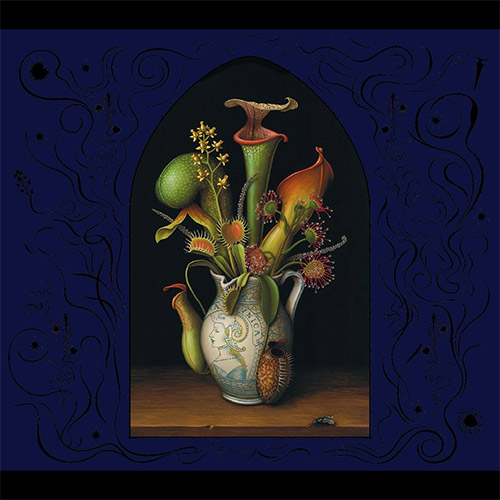

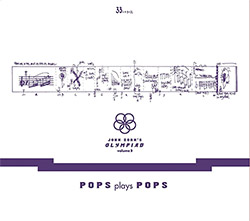
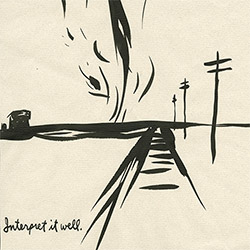
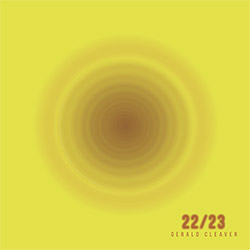

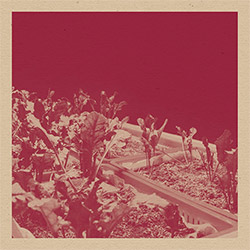
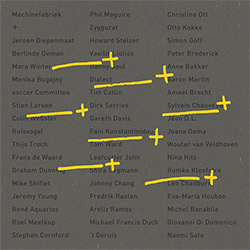

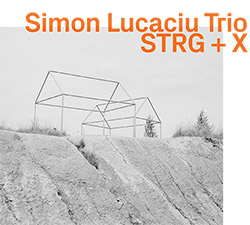

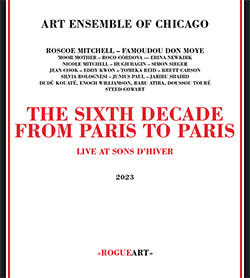
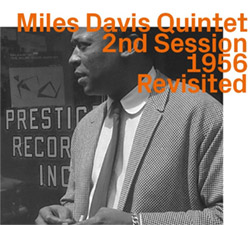
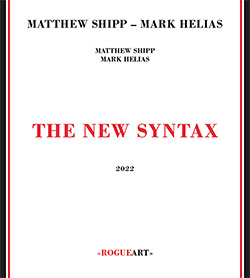


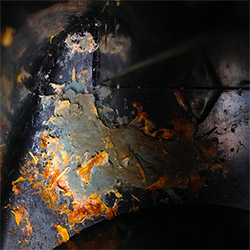
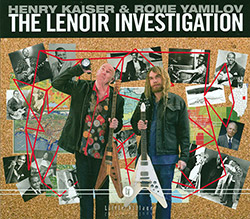

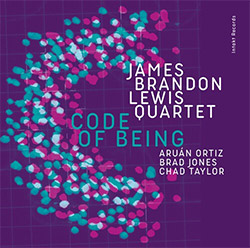

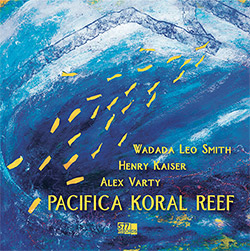

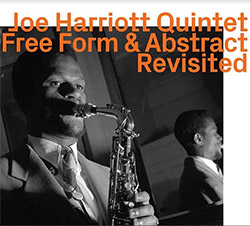

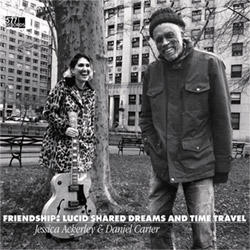
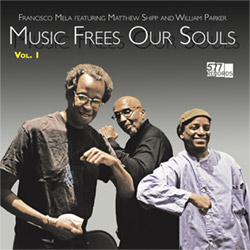



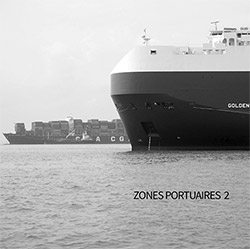
![111 (Michelle / Villamil): Live at Opus 40 [CASSETTE]](https://www.teuthida.com/productImages/misc4/35986.jpg)
![del Pino, Francisco / Charlotte Mundy: The Sea [CASSETTE]](https://www.teuthida.com/productImages/misc4/35987.jpg)

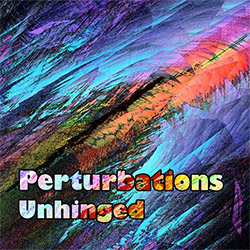

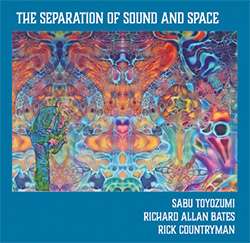
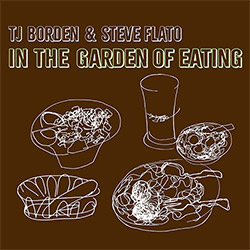

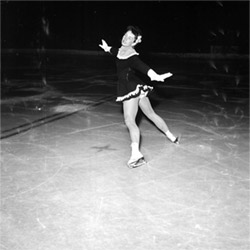
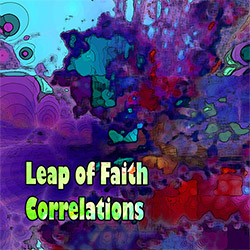

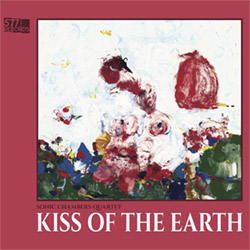

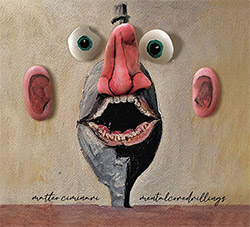
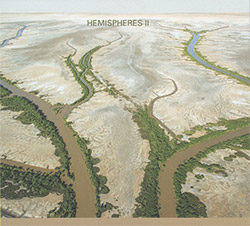
![Niblock, Phill / Anna Clementi / Thomas Stern: Zound Delta 2 [VINYL]](https://www.teuthida.com/productImages/misc4/34623.jpg)
![Yoko, Ono / The Great Learning Orchestra: Selected Recordings From Grapefruit [2 CDs]](https://www.teuthida.com/productImages/misc4/35841.jpg)

![Brotzmann, Peter / John Edwards / Steve Noble / Jason Adasiewicz: The Quartet [2 CDs]](https://www.teuthida.com/productImages/misc4/35975.jpg)
![Brotzmann, Peter / John Edwards / Steve Noble / Jason Adasiewicz: The Quartet [VINYL 2 LPs]](https://www.teuthida.com/productImages/misc4/35976.jpg)
![Thomas, Pat: The Solar Model of Ibn-Al Shatir [VINYL]](https://www.teuthida.com/productImages/misc4/36044.jpg)
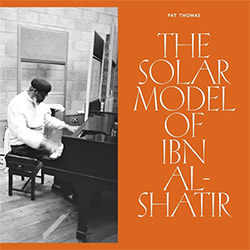



![Rodrigues, Ernesto / Nuno Torres / Guilherme Rodrigues: Whispers In The Moonlight - In Seven Movements [2CDs]](https://www.teuthida.com/productImages/misc4/35765.jpg)



![Cocks, Laura: FATHM [VINYL]](https://www.teuthida.com/productImages/misc4/36055.jpg)













![Schindler, Udo / Sandy Ewen / Damon Smith: Munich Sound Studies Vols. 4, 5 & 6 [3 CDs]](https://www.teuthida.com/productImages/misc4/35966.jpg)
![Turbulence Orchestra & Sub-Units: Smear Out the Difficulties (Double Live) [2 CDs]](https://www.teuthida.com/productImages/misc4/36048.jpg)

![Myers, David Lee : Tin Drop Tear [BOOK w/ DOWNLOAD]](https://www.teuthida.com/productImages/misc4/36030.jpg)

![Ackerley / Prymek / Turner: All Hope With Sleeping Minds [CASSETTE]](https://www.teuthida.com/productImages/misc4/35950.jpg)








![Olencki, Weston : Pearls Ground Down To Powder [VINYL]](https://www.teuthida.com/productImages/misc4/35956.jpg)
![Myers, David Lee: Oculus [2CDs]](https://www.teuthida.com/productImages/misc4/35857.jpg)


![dustsceawung: dustsceawung [CASSETTE w/ Download]](https://www.teuthida.com/productImages/misc4/35753.jpg)




![Halls of the Machine: Atmospheres For Lovers And Sleepers [CASSETTE w/ DOWNLOAD]](https://www.teuthida.com/productImages/misc4/35806.jpg)











![Zorn, John / JACK Quartet: The Complete String Quartets [2 CDs]](https://www.teuthida.com/productImages/misc4/35609.jpg)

![Lonsdale, Eden: Dawnings [2 CDs]](https://www.teuthida.com/productImages/misc4/35480.jpg)







![Sanna, Claudio: Compositori Sardi Contemporanei II [2 CDs]](https://www.teuthida.com/productImages/misc4/35317.jpg)







![Zurria, Manuel: Fame di Vento [3 CDs]](https://www.teuthida.com/productImages/misc4/35167.jpg)

![Electric Bird Noise / Derek Roddy: 8-10-22 [CD EP]](https://www.teuthida.com/productImages/misc4/35970.jpg)








![Elephant9 : Mythical River [VINYL]](https://www.teuthida.com/productImages/misc4/34624.jpg)



![Elephant9 with Terje Rypdal: Catching Fire [VINYL 2 LPs]](https://www.teuthida.com/productImages/misc4/35355.jpg)
![Deerlady (Obomsawin, Mali / Magdalena Abrego): Greatest Hits [VINYL]](https://www.teuthida.com/productImages/misc4/34876.jpg)







![Surplus 1980: Illusion of Consistency [CD]](https://www.teuthida.com/productImages/misc4/35069.jpg)
![Staiano, Moe: Away Towards the Light [VINYL + DOWNLOAD]](https://www.teuthida.com/productImages/misc4/35037.jpg)



![Caveira (Gomes / Sousa / Abras / Ferrandini): Ficar Vivo [VINYL]](https://www.teuthida.com/productImages/misc4/34643.jpg)
![Coley, Byron: Dating Tips for Touring Bands [VINYL]](https://www.teuthida.com/productImages/misc4/17906.jpg)

![Lost Kisses: My Life is Sad & Funny [DVD]](https://www.teuthida.com/productImages/misc4/lostKissesDVD.jpg)